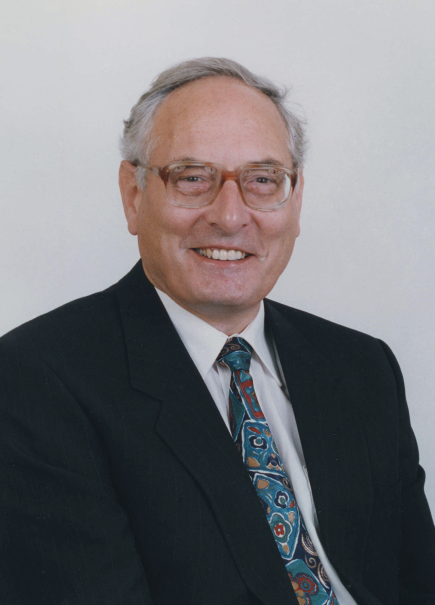
Tony Trinci has died, aged 84, on the 7th October 2020.
Born in Swindon to parents of Italian descent, he read Botany at Durham University (1959) where he focussed on fungi physiology during an MSc. After a short spell as a school teacher, he returned to Durham and did a PhD with the late Geoff Banbury studying the physiology of tall conidiophores of Aspergillus giganteus.
In 1964 he moved to a lectureship in the Microbiology Department at Queen Elizabeth College (QEC), the University of London where he initiated his research on fungal growth kinetics and physiology. In seminal studies, he developed methodologies allowing direct observation of colony growth and organisation of the mycelium by hyphal tip growth and branch initiation. He described and defined for the first time a set of parameters for measuring the growth of the mycelial colony. Colony Radial Growth Rate, Peripheral Growth Zone, Hyphal Growth Unit, allowed the definition and modelling of hyphal branching and colony formation using wild type mycelia and colonial mutants. He complemented this work on surface growth with studies of filamentous fungi in submerged continuous culture describing many aspects of growth physiology.
In 1981 he moved to the Barker Chair of Cryptogamic Botany in Manchester. Tony was a great advocate of curiosity-driven research but, intriguingly, his fundamental mycological knowledge became applied to collaborative projects supporting commercial applications of filamentous fungi. Quorn, developed by Rank Hovis McDougall and ICI, is a Fusarium mycoprotein human food product that has achieved great commercial success with the rise of vegetarianism. It became apparent that during the fermentation of the filamentous fungus colonial variants arose with short hyphal filaments and these may take over the culture and so might impair the product. Tony’s research with Marilyn Wiebe, Geoff Robson (deceased) and Steve Oliver showed how these variants arose and how they could be suppressed.
He developed a second major theme to his research when in a decades-long collaboration with Mike Theodorou – a rumen microbiologist at the Institute of Grassland and Environmental Research, he studied the intriguing gut anaerobic fungi. His broad knowledge was applied to understanding the life cycle and the role these fungi played in the rumen. The group elucidated the timing of events of the gut fungal life cycle, including the identification of a hitherto unrecognised survival stage. They confirmed anaerobic fungi as ubiquitous in the gastrointestinal tract of most large, mammalian herbivores where they digest lignocellulosic plant biomass. Jayne Brookman joined the collaboration in 1994 and molecular approaches allowed identification and classification of these enigmatic fungi. Again, as with Quorn, projects with a commercial partner – Genencor (now part of DuPont) – led to practical outcomes. Investigating fungal enzymes from aerobic and anaerobic fungi for use in animal feed they had marked success with a phytase enzyme, isolated from Penicillium species, that was used to release phosphate in animal feeds.
Tony became a leading figure in the change occurring in biosciences in UK universities over the past 40 years. He recognised the opportunities brought by molecular biology to research and teaching across all biosciences. Soon after his appointment in Manchester he selflessly led change in organisation and culture, leading to the first integrated School of Biological Sciences. This pattern, which today provides massive opportunities for research and for students’ learning, is the norm throughout the UK and in multiple institutions overseas. In mycology specifically, he was again a champion of inter-disciplinarity. Working across unconventional boundaries he facilitated links with medicine and supported David Denning’s development of the Manchester Fungal Infections Group.
He received many prizes and awards; was recognised internationally, and uniquely served as President of the two largest UK Professional Learned Societies in Microbiology: President of the Microbiology Society and President of the Mycological Society. He was awarded the highest award of the Microbiology Society – the Marjory Stephenson Prize, was an Honorary Member of the British Mycological Society, the Microbiology Society and the Mycological Society of America and a Fellow of the Royal Institute of Biology.
Tony Trinci was an inspirational teacher and mentor, an innovative and transformative researcher and an efficient and visionary administrator. Most of all, however, he was a genuinely nice, considerate and modest person. He gave huge amounts of credit and personal support to colleagues and students and gave unselfishly of his time to improve organisations. He will be sadly missed.
His life outside academia was also varied: first and foremost, he was a devoted family man but also involved in socially-focused politics, school governorships, charitable organisations. He was a Trustee of the Fungal Infection Trust from September 2006 until January 2011.
In January 1961 he married Margaret, whom he met at the University of Durham, and she survives him, along with three children, John, Sarah and Rachel, seven grandchildren and two great-grandchildren.
KEITH GULL
October 2020
